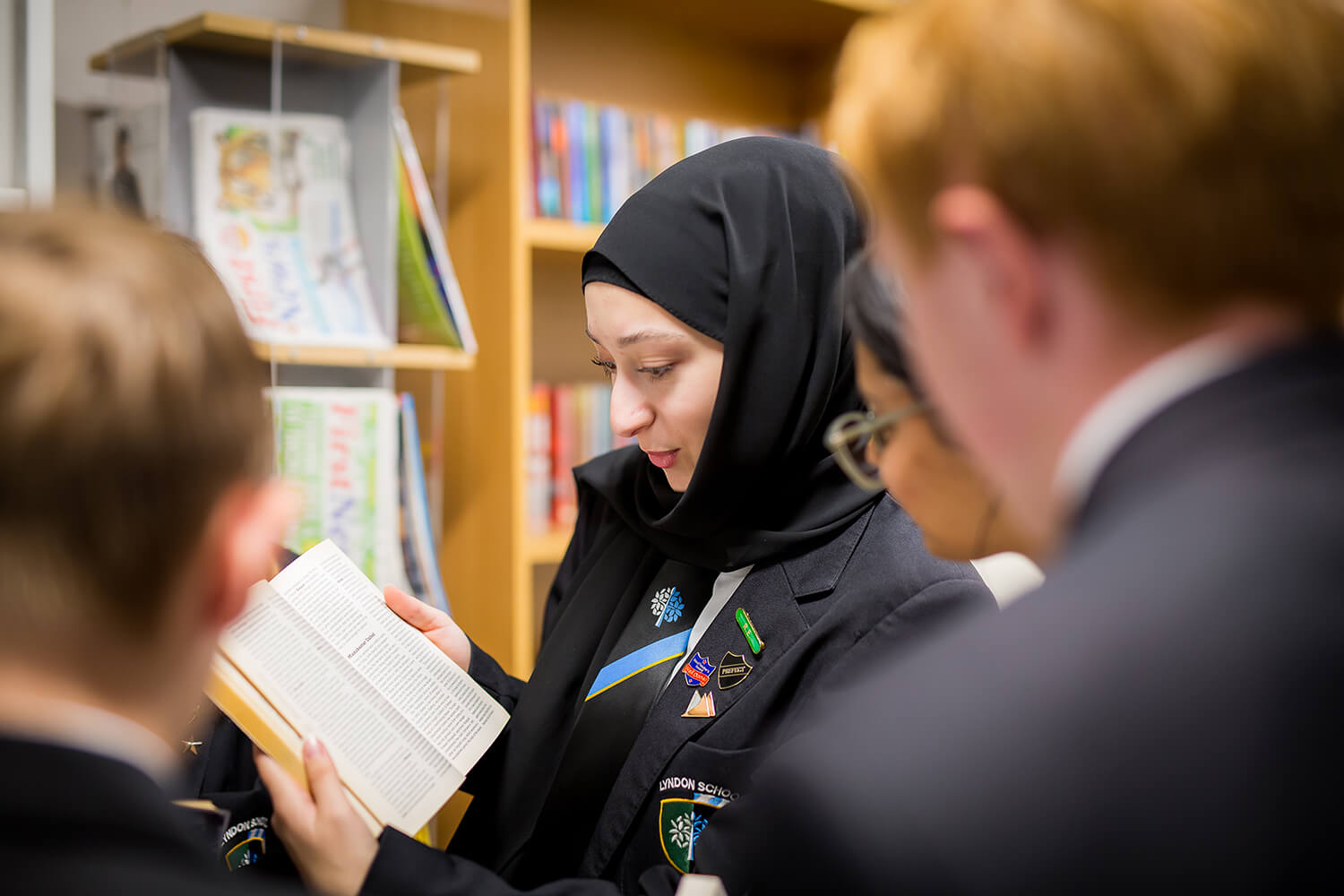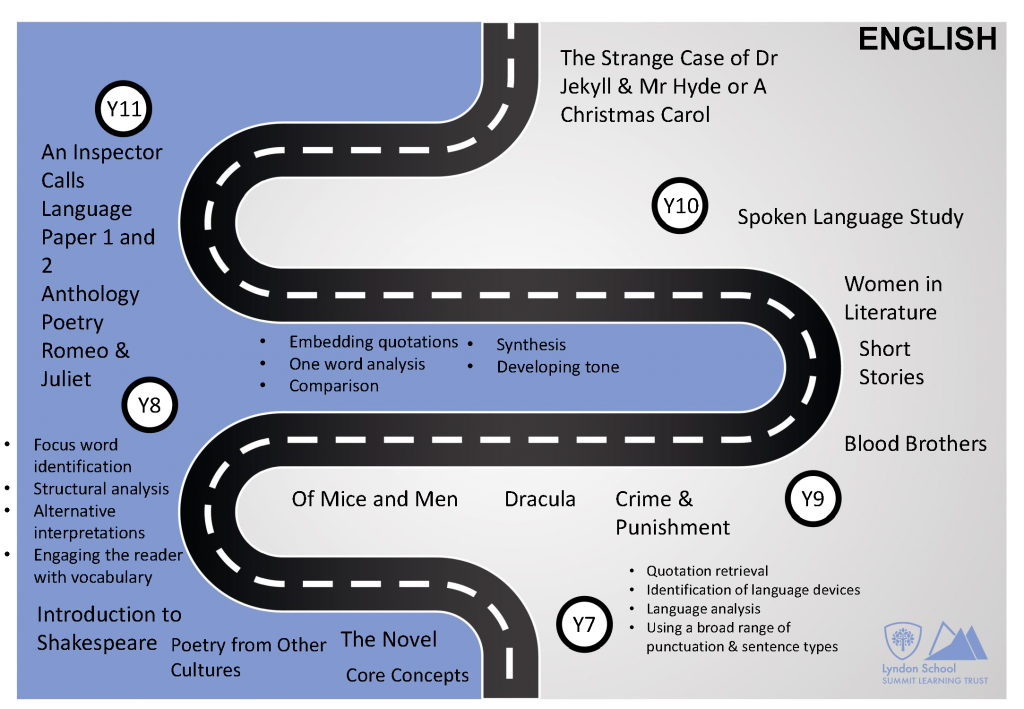Curriculum Team Leader: Mrs. Knifton
Assistant Curriculum Team Leader for KS3: Miss. Pagett
Curriculum, Teaching and Learning Ambassador (KS4): Mrs. Rose
Key information:
Following the AQA examination specification, Key Stage 4 students will study a range of texts, catered to students’ needs that will inspire and motivate whilst providing appropriate stretch and challenge.
Using the KS4 AQA examination Assessment Objectives, students in KS3 will study a variety of texts that will cover prose, poetry, theatre and creative writing.


Curriculum Intent
The Lyndon School English curriculum is designed to:
- Inspire and enthuse young people about English Language and English Literature
- Treat all students as an individual – personalise learning and create challenging opportunities for all
- Develop, promote and utilise engaging activities to foster a love of learning
- All students will leave Lyndon having experienced and enjoyed facets of literature from a broad spectrum of prose, poetry, plays and non-fiction, recognising its power in society today.
- Texts studied will enable students to explore and examine culture and develop a deeper understanding of the world.
- All students will leave richer in literacy and have gained an appreciation and understanding of its ability to improve lives.
Our students will be equipped for life after Lyndon with a thorough understanding of reading, writing, speaking and listening; they will garner crucial literacy skills laying the foundation for further study and/or employment.

Potential future career pathways in subject area
The sky is the limit with an English degree! Here are just a few of the career options open to you with an English degree:
Editorial assistant, magazine and newspaper journalist, proof-reader, web content manager, writer, public relations officer, film director, academic librarian, records manager and, of course, a primary or secondary teacher.
English graduates develop a wide range of skills that are valuable to graduate employers including: how to argue a point, how to think independently, to summarise, to write and speak well, to write reports, to present information effectively and to work as part of a team.
In addition to this, those who study English at university are also likely to develop many of the skills required for careers in law and the legal sector, although a graduate-level degree will be needed for many legal roles – including becoming a barrister or solicitor.

